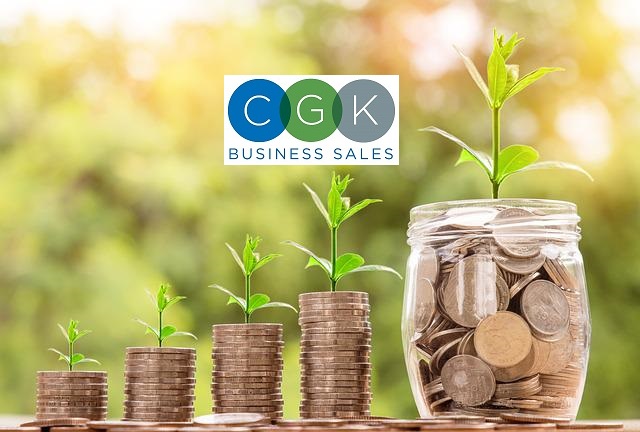Five of the Highest-Valued Businesses of All Time

Five of the Highest-Valued Businesses of All Time
With market caps higher than the gross domestic products of many countries, five of the highest-valued businesses of all time have been, at their peak, worth astronomical sums. From trading companies of the colonial era to some of the 21st century’s tech titans, we will reveal some of the highest-value businesses ever bought and sold.
Visa
Worth almost $451 billion, Visa Inc. arose when the Bank of America wanted to compete with Mastercard. Visa is now the world’s leader in digital payments, especially through its prepaid, debit, and credit cards. As of the time of this writing, Visa’s value exceeds that of Mastercard by more than $100 billion.
As cash is gradually supplanted by plastic, it’s no surprise that Visa has such a high business valuation. With that said, the company is investing more in customer perks and rewards, which has made its last earnings report a bit disappointing—and caused the company’s shares to take a dive.
China Mobile
A state-owned enterprise worth $510 billion, China Mobile is the biggest mobile phone operator in the world, as well as one of the most valuable telecommunications firms. While the company is currently at its peak, it lost its monopoly and its shares declined in 2008 after China’s government merged smaller companies to increase competition. It’s still the country’s top telecom, but its market cap has shrunk considerably within the past year.
Berkshire Hathaway
One of America’s biggest conglomerates, Berkshire Hathaway owns some of the most famous names in the country. Worth $562 billion, the company has significant interests in Bank of America, Coca-Cola, Kraft Heinz, and other iconic names. Headed by investor Warren Buffett, Berkshire Hathaway is known for its high share price.
The company reached its highest-ever value on January 17, 2020, when its share price reached $344,970. Since then, the price has come down a bit, reaching approximately $333,000.
Standard Oil
Established back in 1870 by Henry Flagler and John D. Rockefeller, Standard Oil was the behemoth of the early 20th century. Thanks to Standard Oil’s monopoly on the United States’ oil industry, Rockefeller amassed enough wealth to become one of the modern era’s richest men.
When its early-1900s value is adjusted for inflation, Standard Oil’s worth is estimated at over $1 trillion. The company met its end in 1911, however, when the Supreme Court decided that Standard Oil was a monopoly, and it was divided into several smaller companies. Despite the government-mandated breakup, several of those companies are still operating today.
Amazon
Another member of the trillion-dollar club is Amazon. Established in 1994 by Jeff Bezos, the cloud computing and e-commerce company achieved that lofty valuation in September 2018. While several factors, such as internal leaks that were reported by The Wall Street Journal, have caused Amazon’s value to decline, it has since rebounded.
Honorable Mention #1: Microsoft
At the peak of the dotcom boom, Microsoft became the most valuable publicly traded entity in the world. Back in 1999, it was worth $613 billion, which is approximately $940 billion when adjusted for today’s inflation rates. However, it has recently surpassed this valuation.
Paul Allen and Bill Gates founded Microsoft in Albuquerque in 1975, and it has come far since its humble beginnings. Its market value rose to $1 trillion in April 2019; it’s only the third American company to reach that mark.
Honorable Mention #2: Apple
From 2013 to 2018, Apple was the most valuable company in the world; it became the first US non-state-run entity to reach a $1 trillion market value. Known for products such as the Apple Watch, iPad, and iPhone, the company’s market cap jumped to over $1.4 trillion early in 2021. Apple followed the same pattern as other tech firms in that regard, and it remains to be seen whether it retains its spot as the world’s third costliest company.
Honorable Mention #3: The South Sea Company
A UK firm, the South Sea Company was established in 1711. From there, it gained a monopoly over South American trade, as well as that of nearby islands. Investors clamored to spend their money with the enterprise, which promised sky-high returns.
By the middle of 1720, shares had risen to $1370 apiece, up from one-tenth that amount early in the year. While the South Sea Company reached a market cap of $4.5 trillion in today’s money, it was not to last. The company’s bubble burst, forcing many of its investors into bankruptcy.
Honorable Mention #4: Company of the Indies
Once known as the Mississippi Company, the Company of the Indies created its bubble at about the same time as the South Sea Company. Established in 1684, the French company once held a trade monopoly in the West Indies and North America. Enticed by promises of outlandish wealth, investors poured unimaginable sums into the Company of the East Indies in 1719.
Within just a year, the company’s share price rose by 1900%, and its value increased to almost $6.8 trillion. When investors learned of the firm’s failure, though, they converted their shares into cash, which caused the bubble to burst.
The Dutch East India Company: The Most Valuable Company of All Time
The most highly valued company ever created, the Dutch East India Company was formed in 1602. It grew to hold a monopoly over the Asian spice trade, and it was the first company to hold an IPO (initial public offering). The Dutch East India Company’s value spiked after its ships, laden with tulip bulbs, sparked Holland’s Tulip Mania of 1634.
The tulip bulbs’ value reached extremely high levels, driving the Dutch East India Company’s share price up by 1200%. Before the bubble popped in 1637, the company was worth $8.2 trillion, which is equal to the combined GDPs of France, the UK, and Germany.
Learning From the Past and Looking to the Future
While some of the companies on this list no longer exist, they have helped shaped today’s economy. Some are examples of good business sense and prosperity, while others serve as lessons on how not to run a company. A few of these firms may reach even higher market caps, but it’s unclear how future legislation may affect their value. What made these five of the highest-valued businesses of all time worth so much? Can you learn some lessons in your business from these examples?

